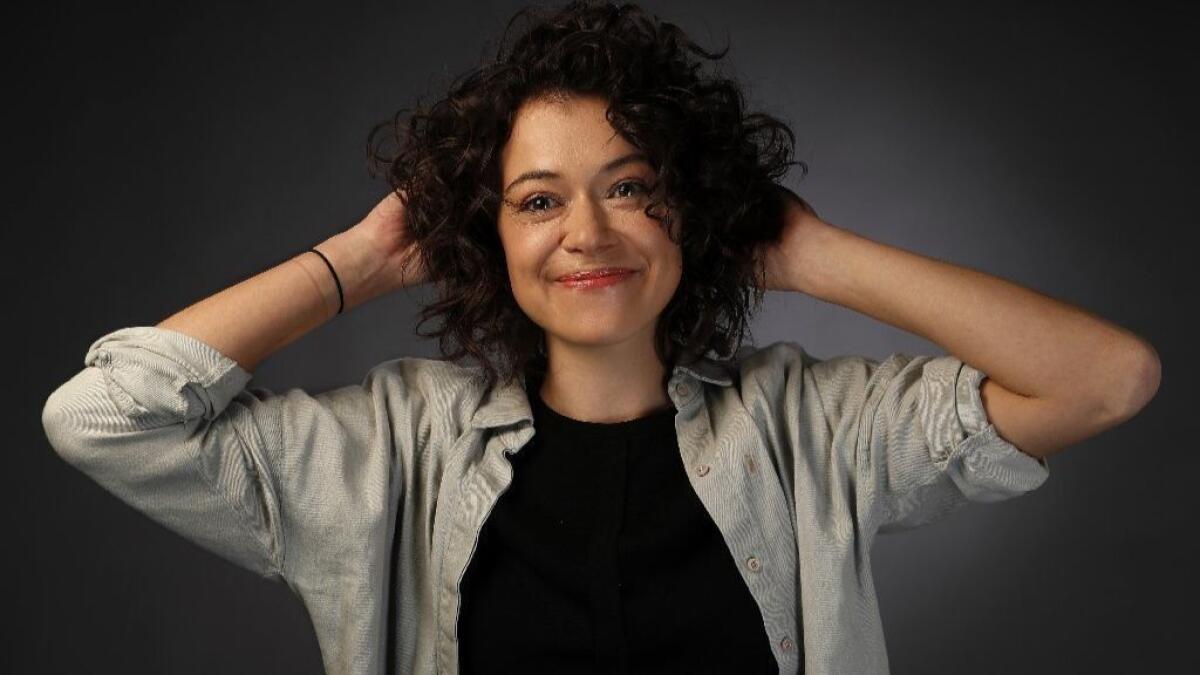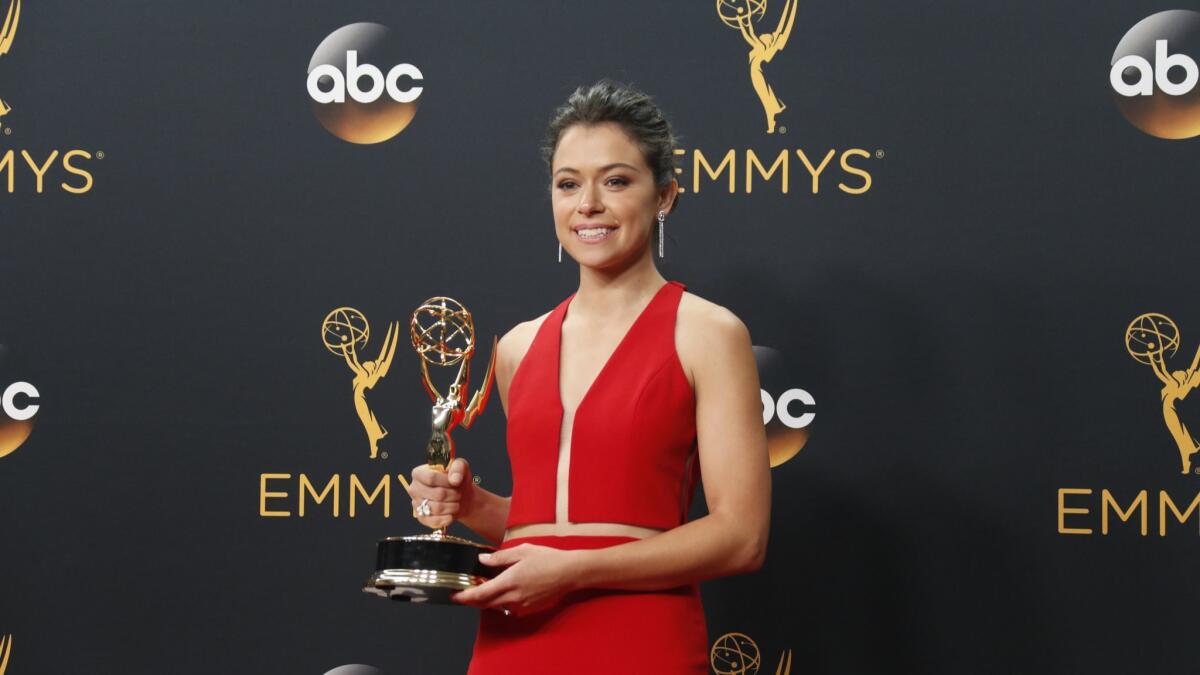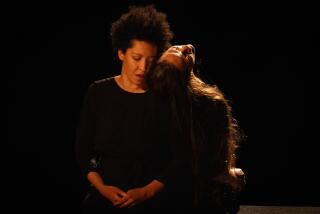Saying goodbye: âOrphan Blackâ explored identity and the freedom to pursue it

âOrphan Blackâ may be â to the uneducated eye â just âthat show about clones.â
But during its five-season run on BBC America, âOrphan Black,â which began its final episodes just after Emmy eligibility last summer, was actually about much more, focusing on themes of identity and body autonomy led by a tour-de-force, Emmy-winning performance from star Tatiana Maslany, who played no fewer than 12 clones during the series.
And as it turns out, when creators Graeme Manson and John Fawcett first formulated the germ of the idea for the show in 2001, all they knew they had was a wicked opening scene: a young woman briefly sees her doppelganger, who promptly walks in front of an oncoming train and dies. The surviving woman â a grifter and con artist â assumes the womanâs identity, which leads her down a dark, conspiracy-laden rabbit hole.
So who was the woman? âWe knew we had a rich opening,â says Manson. âWe thought, âtwins?â â but quickly, we got to clones. We were fascinated with nature versus nurture.â
âSestra-hoodâ triumphs in the âOrphan Blackâ finale Âť
They were also approximately 10 years from seeing that idea realized on camera. Their concept was too early for the zeitgeist storm that would make âOrphan Blackâ light up: cable televisionâs appetite for original programming was just getting whetted, and science-fiction dramas were still a few years away from being trendy. The idea was too big for a feature film, so the pair set to developing a TV series and started pitching in 2009. It would take another year or so before BBC America gave them the green light.
âEveryone said no,â recalls Manson. âEveryone was thinking, âHow are they going to pull this off?â Because if an actor couldnât do absolutely everything, it was going to suck.â
Fortunately, Maslany came along, and was perfect. âThe show was a high-wire act, and she never wobbled,â says Manson. âWe wanted it to be funny, action-oriented, slap-the-viewer-upside-the-head, gory and sick and meaningful and have real characters. Tatiana gave us that ability.â
From the start, the actress turned heads for the way she could seemingly shape-shift into versions of a person who always looked more or less the same, yet each was clearly a unique individual. She contained multitudes.
âIt was a huge learning curve,â recalls the actress, who faced additional challenges like sometimes playing a clone who was pretending to be yet another one of the clones. âThanks to the writing, the voices were clear on the page, and I had the luxury of an hour in hair and makeup where I could let an old character leave and a new one come in.â

âOrphanâsâ cult success had a ripple effect on its network, which at the time was in the process of refining its brand on this side of the pond, and wanted a defining series. While âOrphanâ never reached the heights of, say, âMad Menâ or âThe Sopranosâ â two series that did help brand their respective networks (AMC and HBO) â it was successful at giving BBCA a voice, particularly with women and the LGBTQ community.
âIt positioned us as being a place that was willing to take fresh risks, and a place that would bank on outlier stories,â says BBCA President and General Manager Sarah Barnett. âBut it also taught us how fans could form a passionate nucleus for the show, and we learned our job was to give the audience content they could share. It really was about listening and not just talking and responding â giving fan groups a real say.â
In the end, âOrphanâsâ success lay in its content â that it wasnât just âthat show about clones.â
âOur show is about individual and community identity and how you define yourself,â says Maslany. âThe clones are seeking autonomy and freedom to be who they are. That is what we were interested in exploring, and thatâs what people responded to.â
Still, after five seasons Manson says it was time to put a period on the end of this 16-year sentence. That said, he (and Maslany) are both open to more âOrphanâ projects down the road, including a movie.
As for how the TV series ended, Manson wanted to keep things open-ended.
âWe wanted to honor these charactersâ choices and their individuality,â he says. âThatâs what they fought for. Maybe you can figure out a way to say that I could barely use the word âhope.â I do like the sense that thereâs still a future to come. That we really watched the journey ⌠but the journey isnât over.â
WATCH: Video Q&As from this seasonâs hottest contenders Âť
More to Read
From the Oscars to the Emmys.
Get the Envelope newsletter for exclusive awards season coverage, behind-the-scenes stories from the Envelope podcast and columnist Glenn Whippâs must-read analysis.
You may occasionally receive promotional content from the Los Angeles Times.










